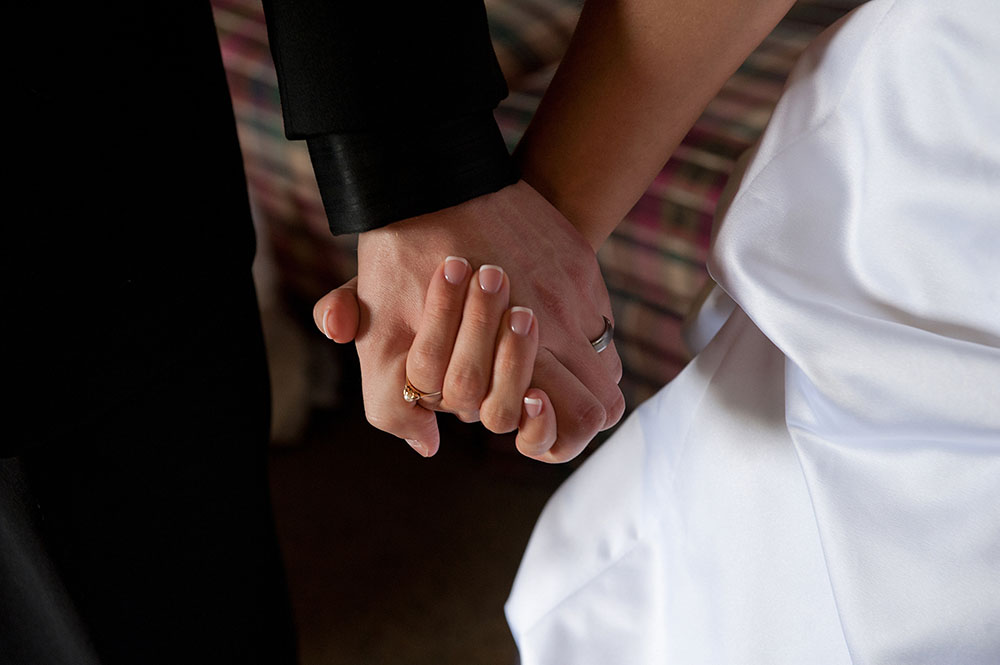One of the more difficult truths about Christianity that we must navigate today is one of the most basic: the truth about what God has intended for marriage. The familiar Genesis story explains how God established man and woman to be together in a covenant and how that covenant is affected in a negative fashion through the fall (see Genesis 1-3). We read in Matthew’s Gospel about Jesus’ reference to the beginning (Mt 19:8) and how marriage is not meant to end in divorce. Even in this context, Jesus is clear that marriage is constituted in a lifelong bond between one man and one woman.
While the permanence of marriage is something worthy of discussion all on its own, it is just as essential to uphold marriage as a covenant between a man and a woman. The covenant of marriage reveals certain truths about our humanity that would be lost if marriage were open to different definitions such as homosexual marriage, polyamorous marriage, etc.
Marriage reveals to us is that man is by his nature a communion of persons. So often we are inundated with the idea that we are atomized individuals in a society. That’s a fancy way to say that we often see life in very individualistic terms and that we determine our own vision of humanity. But marriage shows us that we aren’t created for isolation, but for communion. Even in the movements for the redefinition of marriage we see this implicit desire played out: we find our meaning only in communion with another.
The reason the Church insists on marriage between one man and one woman, though, is that communion has a goal, a mission, a purpose. The Church teaches that marriage is for the mutual enrichment of the spouses and the procreation of children. The term mutual enrichment is enlightening in and of itself: it is not about self-enrichment. Rather, enrichment only comes through and with another. Thus the communion of persons in marriage is only possible through self-gift, not self-fulfillment. To phrase it differently: marriage is not about seeking a personal, selfish fulfillment, nor is it about simple companionship. But it comes by the principle that the only way to gain life is the give it away for another. This is a fundamental truth revealed through marriage and one of the purposes marriage has: to be witnesses to love. To reveal that this form of love, which builds up communion, is what fulfills the humanity of every person.
This communion through self-gift is expressed sexually in marriage. Scripture is clear that procreation is a central purpose for the sexual act. It thereby follows, quite simply, that marriage must be between a man and a woman because only the conjugal act between the two can have as its end the possible procreation of a child. Indeed, the Church teaches what she does about the exclusivity of marriage to being between a man and a woman for two reasons. One is simple: it is how God has constituted things and revelation clearly states this. Second: we can see from nature that man and woman are made for each other. Our biology reveals that this communion only makes sense between a man and a woman. In this communion, too, the complementarity of man and woman fulfills and completes each other through the distinctive characteristics of their genders.
This is a hard teaching for the world to understand. The reasons are manifold why people often misunderstand the Church’s teaching. The moral character of her teaching on marriage depends on a moral framework that sees the purpose of things to be constitutive of moral action. The sexual biology of man and woman have specific ends or purposes that can only be completed in the context of a union with each other. Or the world does not see procreation as a necessary outcome of marriage. Here we often see that marriage is about companionship or that how one “feels” is what really matters. This is the line of argumentation often used by people who are pursuing the same-sex marriage agenda. Yet they’re ignoring the fundamental character of marriage that sex is both integral to it and has a specific purpose, even if that outcome is not always achieved, namely, both the enrichment of the spouses through self-gift and the related possibility of bringing about new life.
The Church’s understanding of this depends on a moral framework that is, at best, foreign to the mindset of most people. It is why we must not only witness with greater fervency to the life-giving nature of marriage, but show how it reveals what it means to be truly human, and thereby call the world back to this truth that is both inscribed in nature and revealed by God.
Father Harrison Ayre is a priest of the Diocese of Victoria, British Columbia. Follow him on Twitter at @FrHarrison. Read more from his Theological Anthropology 101 series here.

